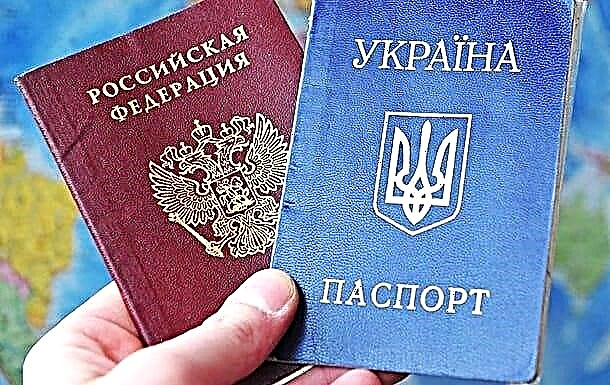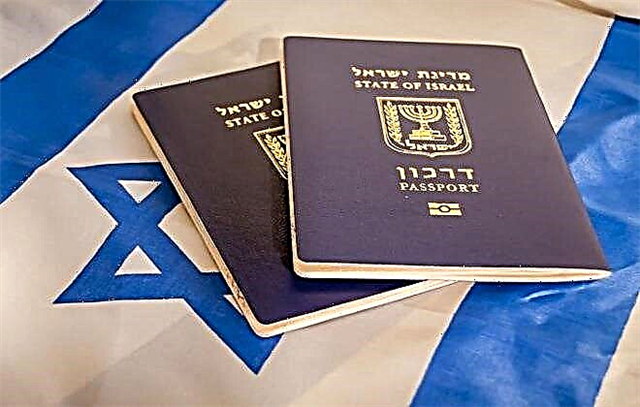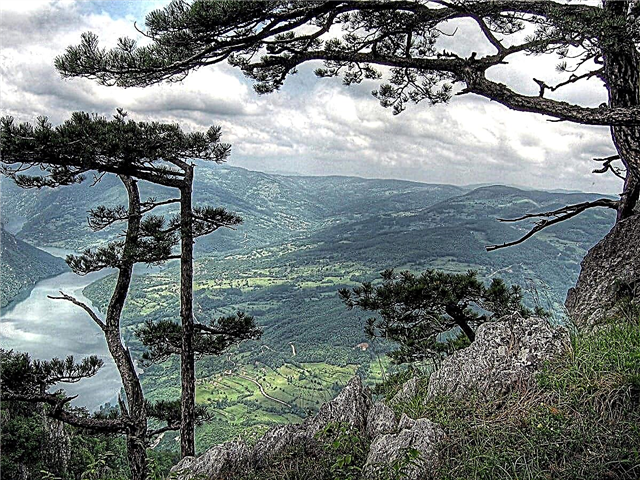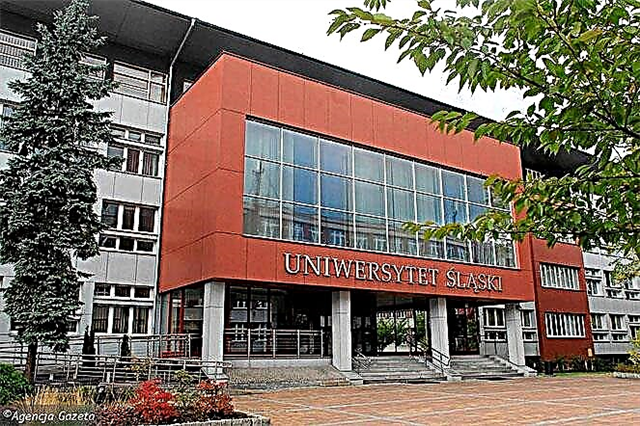Increasingly, applicants from the Russian Federation choose Poland to continue their studies at one of the universities of this country - the republic remains loyal to immigrants from Eastern Europe who enter Polish universities. The University of Silesia provides young people with the opportunity to study according to European standards in 200 specialties and receive a diploma, which is highly regarded in the European Union and allows them to count on successful employment.

What is known about the University of Silesia
Silesian State University was founded in 1968 on the basis of the Higher Pedagogical School and a branch of the Jagiellonian University from Krakow, which have been operating since the beginning of the twentieth century. This institution of higher education, which opened in Katowice, became the ninth university in Poland. At that time, students were trained in four areas: humanitarian, mathematical, legal and technical disciplines.
During its existence, the University of Silesia has trained and graduated over 140,000 specialists. Its graduates are the head of the Polish Ministry of Sports Witold Benka, journalist and radio host Tomasz Beksiński, editor of the famous Polish news program “Fakty” Kamila Durczoka, popular music producer and image maker Maya Sablewska.
Currently, most of the faculties are located in Katowice, the rest are in Chorzów, Sosnowiec and Cieszyn.
Campus and student leisure
The University of Silesia has three academic cities: in Katowice, Sosnowiec and Cieszyn. In each of the named cities, campuses of some faculties and hostels are located for a comfortable stay of nonresident and foreign students.
In Katowice, Akademgorodok is located in the Ligota district near a picturesque park area. It has three dormitories, each of which has its own gym, tennis court, gym, stationery and grocery stores, a bar, and a student club.
In Sosnowiec, the campus is located in the Pogon area. In this city, the buildings of the Faculty of Philology, as well as the Faculties of Informatics and Materials Science are located. The campus has four dormitories, a canteen, a student club, and even a taxi dispatch office. The Teshin campus has three dormitories, a cafe, a student club, and various sports facilities.
All students of the University of Silesia, if they wish, can take part in the work of the university newspaper, prepare materials for student television or work on filling the pages and channels of the university in international social networks.
Directions of training
The list of specialties offered by the University of Silesia is very wide. Currently, the university prepares bachelors and masters in 45 areas. Teaching is carried out mainly in Polish and English.
In 2021, applicants from Russia can get education at 12 faculties of the university:
- Faculty of Fine Arts and Music;
- Faculty of Biology and Environmental Protection;
- Faculty of Ethnology and Educational Sciences;
- philological faculty;
- Faculty of Mathematics, Physics and Chemistry;
- Faculty of Informatics and Materials Science;
- Faculty of Natural Sciences;
- sociological faculty;
- Faculty of Pedagogy and Psychology;
- Faculty of Law and Public Administration;
- Faculty of Radio and Television;
- Faculty of Theology.

Introductory campaign
International cooperation is one of the priorities of the University of Silesia, therefore, a lot of attention is paid here to programs that allow foreigners to study in Poland. For the convenience of applicants from Eastern Europe, the university administration has created an official website in Polish, English, Russian and Ukrainian.
The introductory campaign for some faculties starts in May and ends in September. Enrollment in faculties is carried out remotely.
Each applicant registers a profile on the university website in the IRK system. Please note: the system goes into active mode only during the introductory events, so you cannot register before the start or after the end of the campaign.
After entering personal data into the system and uploading the necessary documents, the applicant must pay an entrance fee and pass a test in the Polish language. In addition, for admission to some specialties, for example, to the Faculty of Radio and Television, Fine Arts and Music, creative competitions are provided.
After passing the test, the applicant will be able to view the results in his personal account registered in the IRK system.
What are the requirements for knowledge of languages
Foreigners are admitted to universities in Poland only after testing their level of proficiency in the state language, since most educational programs are conducted in Polish and future students must know it in order to understand the educational material.
For applicants who have completed one-year preparatory courses in educational institutions designated by the Ministry of Education of Poland and have state-recognized certificates of the level of knowledge of the Polish language, tests are automatically counted.
Those applicants who have not studied in the courses and do not have certificates will be offered to pass a language proficiency test during the introductory campaign. The test consists of a written block and a short interview on the topic of the chosen specialty with a teacher via Skype.
You can improve your knowledge at the School of Polish Language and Culture, which exists at the University of Silesia. If desired, in this school you can take both group and individual monthly, semester and annual language courses. There is also a special program for foreigners entering Polish universities, which is taught at the Polish Language Summer School in Cieszyn.
To enroll in a course where teaching is in English, you will need an international certificate of language proficiency (IELTS, TOEFL or similar).
What documents are needed for admission
The applicant uploads to his personal account in the IRK system:
- scanned copies of pages of a foreign passport with personal data and a photograph;
- scanned copies of the secondary education certificate (apostille must be affixed);
- translation of the certificate of complete secondary education into Polish;
- a document confirming knowledge of the Polish language (if any);
- an electronic photograph measuring 3.5 by 4.5 cm.
The rest of the papers are presented after a positive decision of the selection committee. In particular, it is necessary to provide the originals of the passport, certificate and its translation, medical certificate (plus translation of the certificate into Polish), insurance policy and student visa.
To live in Poland for the purpose of obtaining education, you can apply for a Schengen or national visa.
The first one is suitable for studying in short-term courses, for example, language courses, the duration of which is no more than 90 days. If the applicant entered a higher educational institution in which he will study for at least three years, a national visa should be issued.
Visa centers and consulates are involved in the registration of the document, and the package of mandatory documents for opening a visa includes the following papers:
- visa application form;
- photo 2 pcs .;
- copies of the pages of the passport;
- copies of civil passport pages;
- student visa insurance (NFZ);
- a document on admission to a university;
- a receipt for payment of tuition;
- the schedule of the educational process;
- documents confirming solvency.
Features of admission with a Pole Card
Holders of the Pole Card are enrolled in higher education institutions on an equal footing with Polish citizens. This means that foreigners with such a document have the right to free education at Polish universities on a stationary form of study. The process of admission with the Pole's Card is no different from that approved for foreign citizens, however, at the registration stage, the applicant must choose: whether he will pass the competition for a free education on the Pole's Card or submit documents for paid education.
In addition, holders of the Pole Card can enter a Polish university through the consulate. To do this, the applicant must wait for the announcement of the start of the selection on the consulate's website - as a rule, the admission campaign starts on April 20. The applicant will be required to fill out a questionnaire and provide the consulate with education documents and a Pole's Card. All examination activities are held at the Polish consulate.

The specifics of studying at the university and its cost
The academic year in Poland consists of two semesters and begins on October 1, but you must arrive earlier. The winter semester lasts until January 31, and the summer semester begins on March 1 and lasts until May 30. At the end of each semester, a two-week session is held. Semesters are divided into modules, at all stages of training, the credit-transfer-accumulative system adopted in Europe is applied.
Training is carried out in stationary and part-time forms. Most of the educational programs are taught in Polish, but there are also English-language courses.
Master and postgraduate studies
After receiving a bachelor's degree, there is an opportunity to continue their studies in a master's degree. To do this, you also need to take part in another introductory campaign, but instead of a certificate, submit a bachelor's degree. It should be borne in mind that some faculties of the University of Silesia provide the opportunity to study in the so-called "undivided master's degree", where the training period is shorter than in the "Bachelor's + Master's" program.
After receiving a master's degree, students, if desired, can continue their studies by enrolling in graduate school.
The cost of university studies includes a registration fee (about 75 PLN), an entrance fee (200 euros) and an annual tranche for bachelor's, master's or postgraduate studies.
Payment is made separately for each semester; for students experiencing financial difficulties, there is the possibility of an installment plan for three equal payments. One semester of study in the specialty "Art therapy" will cost 1,100 euros, at the Faculty of Biology - 1,300 euros, French philology - 1,000 euros, culture studies - 1,100 euros. A list of prices can be found on the website of the Silesian State University.
Should you expect to receive a scholarship
The Department of Social Affairs is responsible for awarding scholarships at the University of Silesia. However, only students with a Pole Card can qualify for scholarships.
There are exchange programs for international students, such as Erasmus, and grants for free education for students from non-EU countries. However, most of these programs do not provide scholarships - only free training in the chosen specialty.
Accommodation at the University of Silesia
Uniwersytet Śląski w Katowicach provides a hostel for all students who need accommodation, offering accommodation in double and single rooms, as well as more expensive studio apartments. Dormitories of the university are of block and corridor type. All rooms are connected to the Internet, there are washing machines.
Students clean their rooms independently, all other rooms are cleaned by technical staff.
The most expensive hostel is in Sosnowiec - here the cost of living in a standard double room starts from 414 zlotys per month. In Katowice hostels, rents start at PLN 375 per month. The cheapest rooms for students in Cieszyn start at PLN 270 per month. Residents have the right to pay for the current month before its end, but a penalty is charged for each month of delay.
How much does life cost in Katowice
Katowice is considered an inexpensive city - according to independent estimates, a student will need about PLN 400 a month for a comfortable stay (no rent).
| Name | Price, PLN |
|---|---|
| Cappuccino in a restaurant | 6.27 |
| Milk (1 liter) | 2, 15 |
| Public transport (1 ticket) | 3, 20 |
| Rent per month in a studio apartment in the center | 1300 |
| Rent for living in a three-room apartment on the outskirts of the city | 1600 |
| Cinema ticket | 25 |
| Internet connection per month | 47 |
Other universities in Poland
Polish higher education institutions actively accept students from Eastern Europe. The most popular are Warsaw, Wroclaw, Jagiellonian universities. The educational process is organized about the same everywhere, there is a possibility of distance admission for applicants from other countries.
Finally
The University of Silesia provides an opportunity to receive quality education at an affordable cost - on average, one course of study costs 2300 euros. Citizens of the Russian Federation annually enter this university and study mainly in natural history, economic and philological specialties. Admission for Russian citizens takes place remotely via the Internet, enrollment is carried out based on the results of a test of knowledge of the Polish language. There is a Polish Language School at the university, training in which will improve the level of knowledge of the Polish language for everyone. All foreign students are provided with a hostel.











